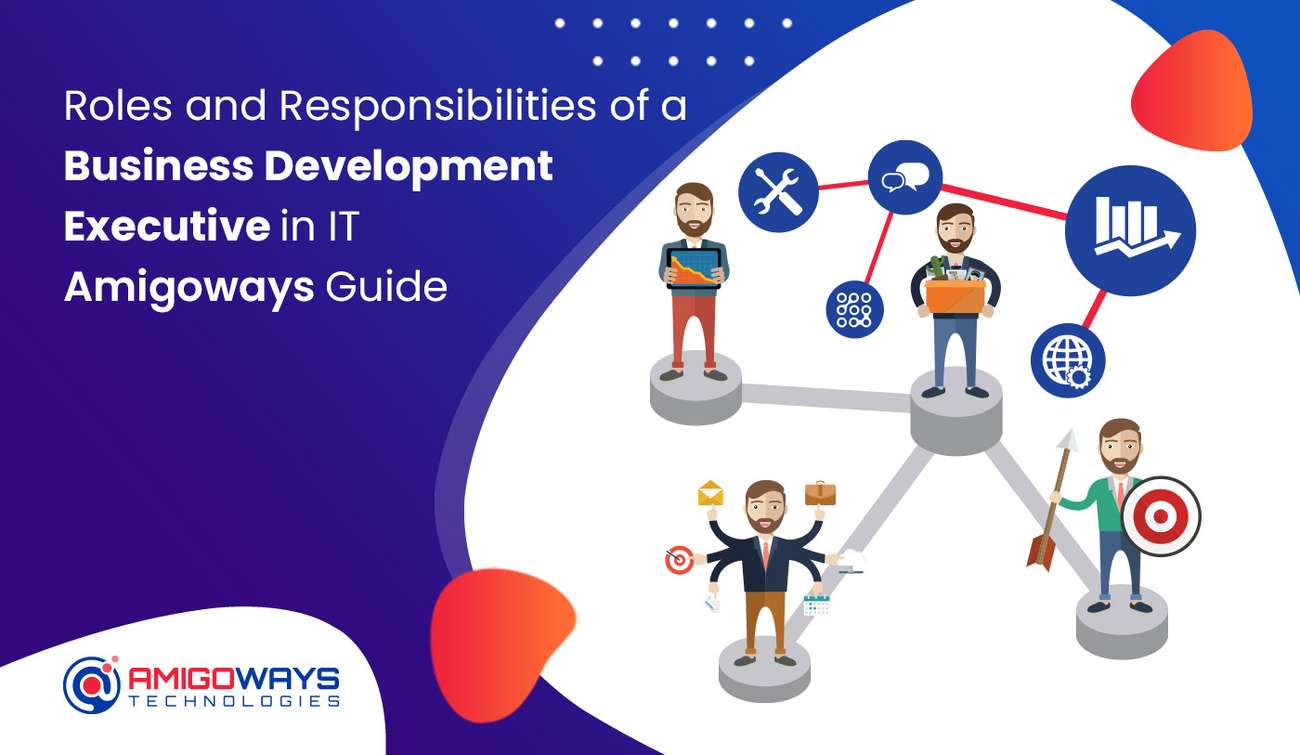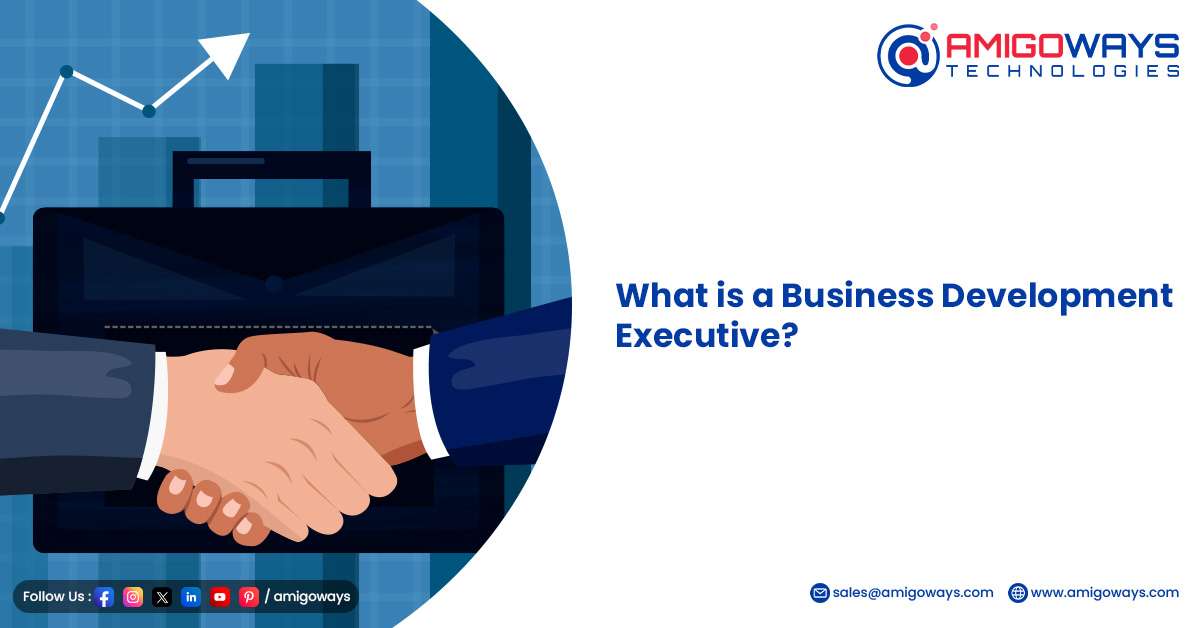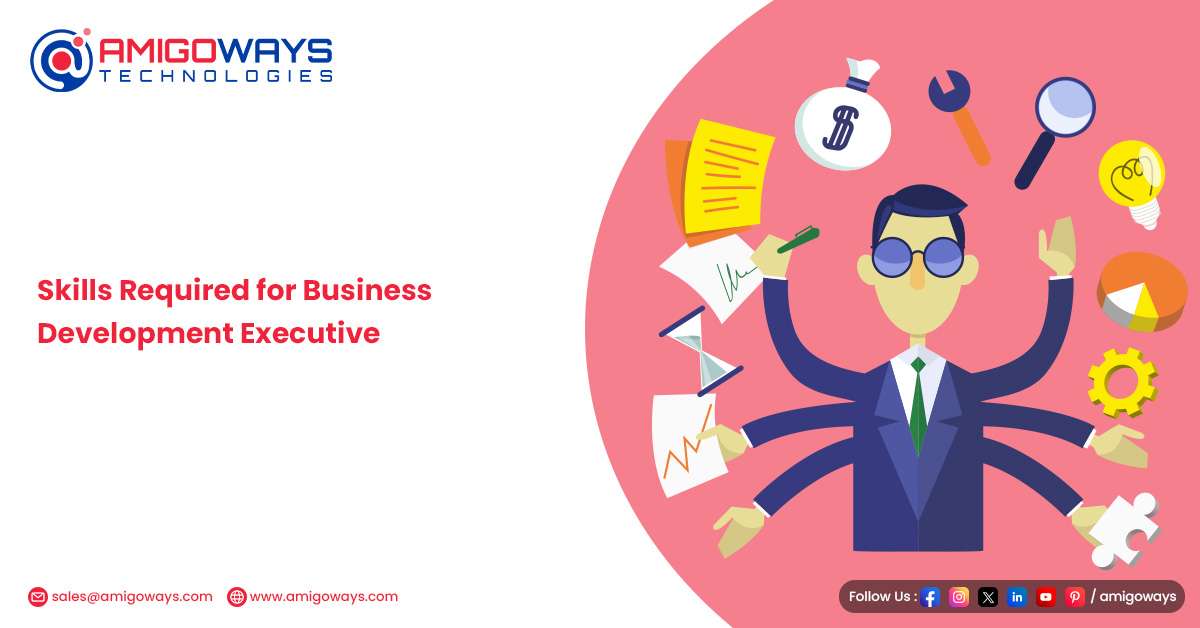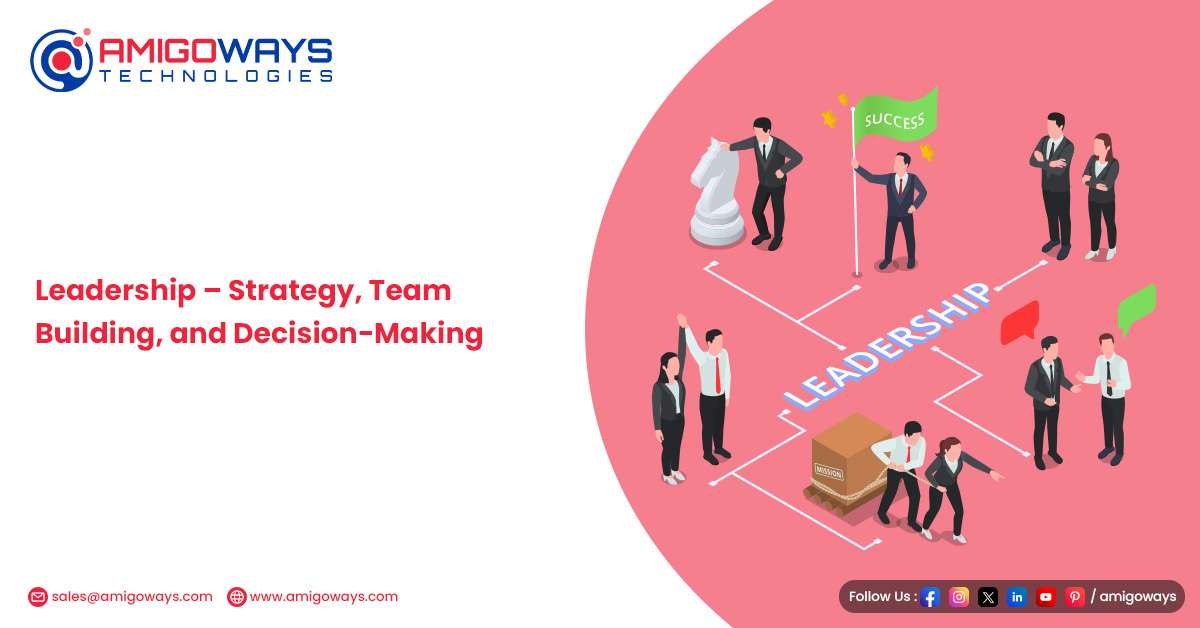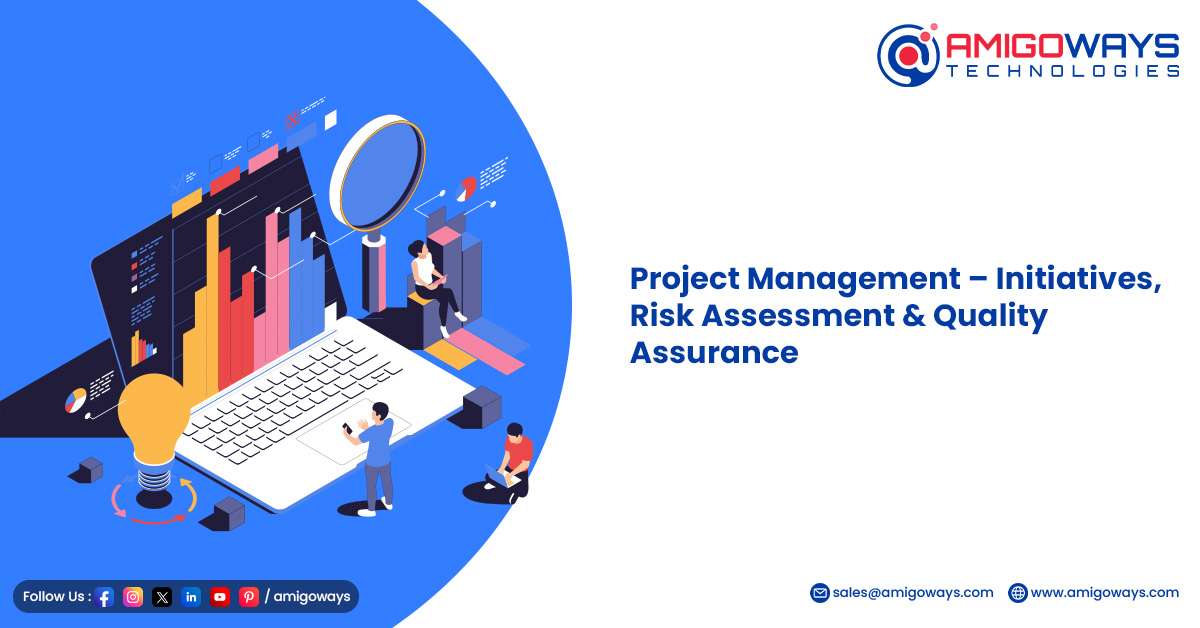In the fast-paced IT industry, Business Development Executives (BDE) play a vital role in driving growth. At Amigoways, we view BDE as more than salespeople they build relationships, explore new opportunities, and support business expansion. This guide highlights the key responsibilities of a BDE in the software sector.
What is a Business Development Executive?
A Business Development Executive (BDE) is a professional responsible for identifying, creating, and managing strategic business opportunities and partnerships for a company. Their primary goal is to drive the growth and expansion of the business by identifying new clients.
What Does A Business Development Executive do?
Business development executives help a company drive sales by sourcing new clients and convincing the existing customer base to make an additional purchase. Some of their common job responsibilities include:
- Building business relationships with new and existing customers
- Familiarising with products and services offered by the company
- Understanding customer’s needs and recommending solutions based on it
- Creating and maintaining a list of prospective clients
- Conducting market research and making outbound calls to prospective clients
- Communicating with stakeholders and business managers to keep and grow accounts
- Travelling to customer’s site and attending trade shows to promote a company’s products and services
- Analysing market trends to build a sales strategy to secure new business
- Using CRM systems to update and maintain a customer database
Skills Required for Business Development Executive
Here are some essential skills to master for a successful career as a BDE:
- Sales
- Marketing
- Leadership
- Product knowledge
- Project management
- Communication
- Networking
- Strategic thinking
- Adaptability
- Problem-Solving
Sales – Lead Generation, Relationship Building & Deal Closing
Sales skills are most important for business development executives. They must negotiate with clients/customers to build and maintain a customer relationship. It includes
- Identifying potential clients and generating leads through various channels such as networking events, cold calling, or digital marketing.
- Understanding their clients’ points, challenges, and goals.
- Cultivating and nurturing solid and long-lasting relationships with clients.
- Guiding prospects through the sales process, handling objections, and ultimately closing deals to drive revenue growth.
Marketing – Research and Data Analysis
It requires marketing skills to promote their brand, understand competition, identify new target clients and gain in-depth knowledge of market trends.
- Market trends, customer behaviour, and competitor analysis help to find new market opportunities.
- Customer preferences and buying behaviour allow business development executives to tailor their products or services to meet customer demands.
Leadership – Strategy, Team Building, and Decision-Making
A business development executive must show vision to the team members. Irrespective of the leadership style, they must be able to make the right decisions by taking ownership. Building leadership qualities takes time and experience for any BDE, but with the right focus, they help one achieve the following.
- Formulate strategic plans that align with the organisation’s long-term goals and objectives.
- Motivate and inspire team members to excel and contribute their best to the organisation’s success.
- Make informed decisions even in high-pressure situations.
- Build and nurture relationships with clients and partners.
Product Knowledge – Aligning Solutions and Educating Clients
All other skills will fall short for a business development executive if they do not possess knowledge of the product, in-depth. These are some ways how this skill helps.
- Clients trust BDE who deeply understand the products or services.
- Product knowledge enables BDE to tailor solutions to match each client’s specific needs.
- BDE with strong product knowledge can communicate the value and benefits of their offerings more effectively.
- By providing valuable insights, BDE can work more productively with internal teams, such as product development and marketing.
Project Management – Initiatives, Risk Assessment & Quality Assurance
Project management must come naturally to a business development executive. This is the skill that brings together all other qualities mentioned above. It helps the BDE in the following ways.
- Project management skills equip BDE with the ability to plan strategically, set clear objectives, and execute tasks efficiently.
- BDE with project management skills excel in identifying potential risks and challenges associated with business expansion. They can proactively develop risk management strategies.
- Project management skills enable BDE to establish clear communication channels, not only within their teams but also with external stakeholders, such as partners and clients.
Communication – Nurture Business Relationships Long Term
Just as the precious sales skills, communication is vital for a business development executive. Having good communication skills helps the BDE in the following ways.
- Communication skills enable business development executives (BDE) to engage with clients, partners, and stakeholders more effectively.
- Trust is fundamental in business relationships. BDE with strong communication skills can establish trust by being transparent, responsive, and reliable.
- Negotiations are a critical aspect of business development. Effective communication allows BDE to convey their points clearly and understand the other party’s perspective and find common ground for mutually beneficial agreements.
- BDE collaborate with various internal teams like marketing, product development, and finance.
- Good communication skills allow BDE to address the content professionally, find common ground, and maintain positive relationships with the clients.
Networking – Initiate Opportunities
Networking is a fundamental competency for a business development executive (BDE). Possessing strong networking skills empowers BDE in the following ways.
- Networking skills enable BDE to connect with clients, partners, and industry persons from various backgrounds, It helps to diverse and expansive network.
- BDE with strong networking skills can establish trust by being genuine, and understanding others points, which is essential for long-lasting connections.
- Through networking, BDE gain valuable insights into market trends, customer preferences, and emerging opportunities, which informs strategic decision-making.
Strategic Thinking – Adapt to Market Conditions
Possessing strong strategic thinking skills benefits the BDE in several ways.
- Strategic thinking enables BDE to formulate and communicate a long-term vision for the company’s growth and development. It helps them to achieve the short-term goals with the strategic objectives.
- Strategic thinking equips BDE with the ability to adapt to changing market conditions and emerging trends. They can proactively identify opportunities and threats.
- BDE with strategic thinking skills can analyse competitors, market dynamics, and consumer behaviour effectively. This analysis leads to identifying unique selling propositions.
- When challenges arise, strategic thinking allows BDE to approach problem-solving systematically. They can assess situations, identify root causes, and develop creative solutions.
Adaptability – Personalising Approach for Clients and Teams
Adaptability is a critical skill for a business development executive (BDE). It empowers them to navigate the dynamic and ever-changing landscape of the business world.
Some more ways the BDE adapts.
- Adverse situations and unexpected challenges are part of the business journey. An adaptable BDE remains resilient and innovative in problem-solving.
- Every client is unique, with distinct needs and preferences. Adaptable BDE tailor their approach to suit each client, demonstrating flexibility in communication styles, negotiation tactics, and service delivery methods.
Problem-Solving – Simplify Complex Challenges
Problem-solving skills are indispensable for business development executives (BDE) as they encounter various challenges and complexities in their roles. These skills enable BDE to navigate obstacles, identify opportunities, and contribute to the growth and success of their organisations.
Some ways, how and why BDE are natural problem-solvers.
- They can analyse data, trends, and market dynamics to pinpoint areas where their products or services can address to meet their needs.
- Effective problem solvers can assess these challenges objectively, break them down into manageable components, and develop strategies to overcome them.
- Problem-solving often involves collaboration with internal teams, such as product development and marketing.
Conclusion
Business development in software companies is a multifaceted approach that combines sales, marketing, product development, and customer relationship management. At Amigoways, we believe that executing these strategies effectively is key to driving growth, enhancing market presence, and building long-lasting client relationships in the ever-evolving IT landscape.

